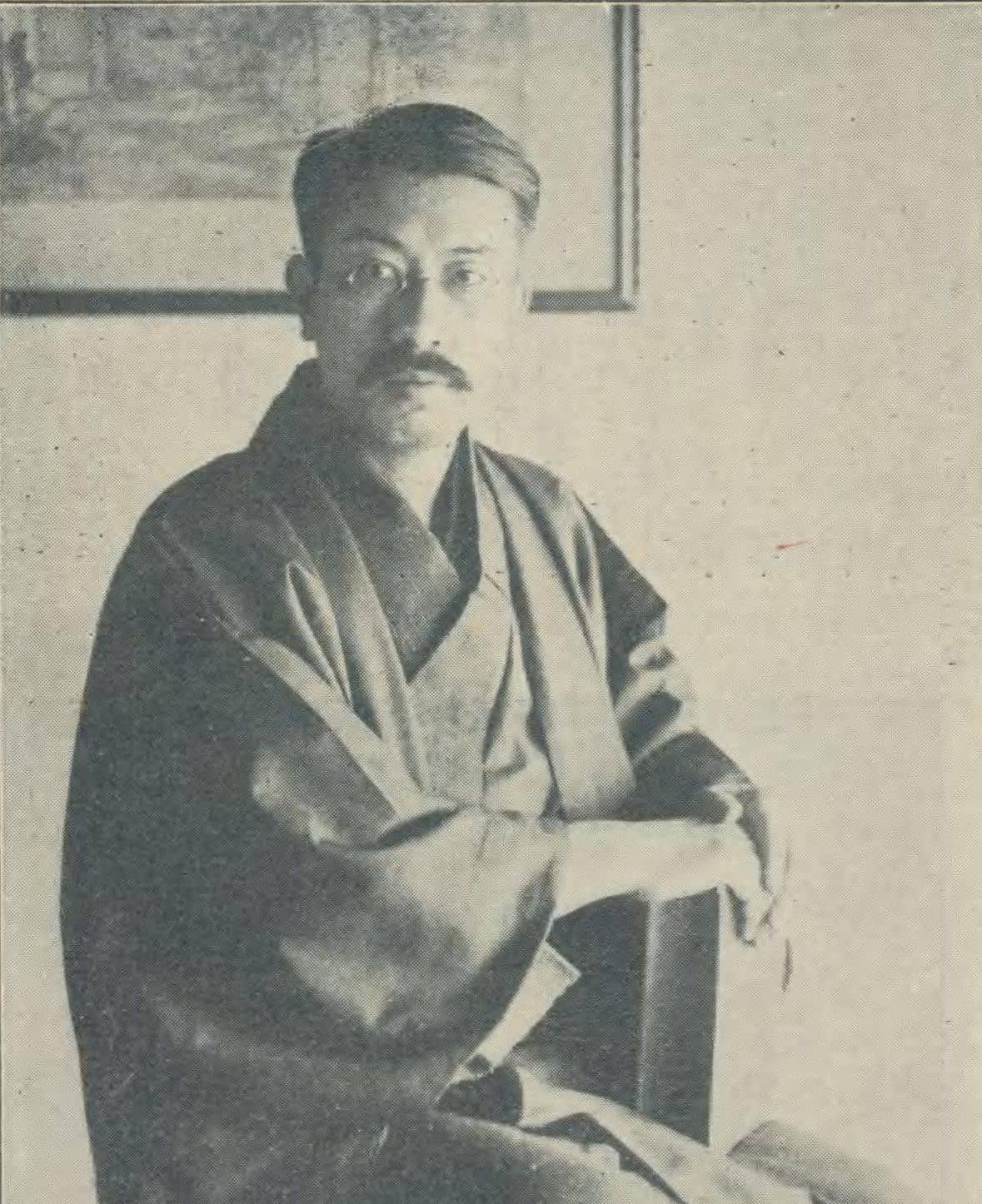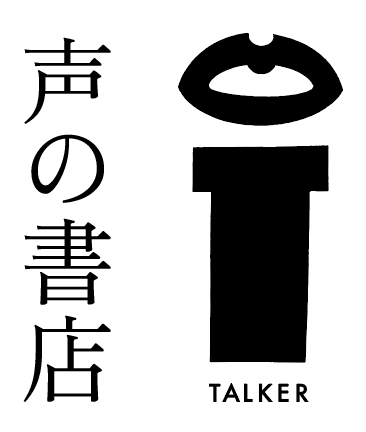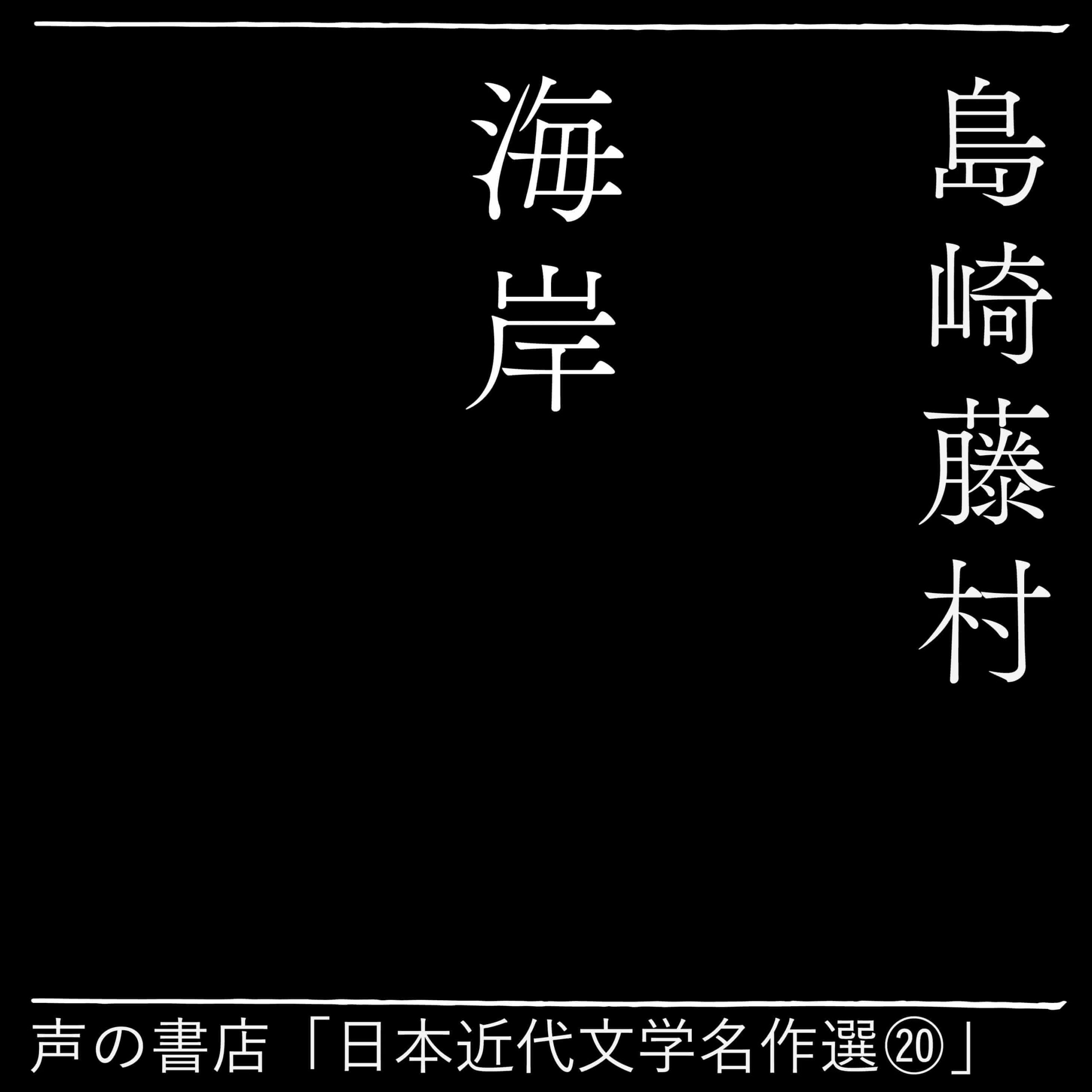
出典:国立国会図書館「近代日本人の肖像」 (https://www.ndl.go.jp/portrait/)
島崎 藤村
明治5年(1872) – 昭和18年(1943)
筑摩県馬籠村(現、岐阜県中津川市馬籠)生まれ。本名、春樹。明治14年(1881) 上京。明治学院卒業。卒業後、『女学雑誌』に翻訳を寄稿。明治女学校、東北学院で教師を務める傍ら、北村透谷らの雑誌『文学界』の創刊に参加。劇詩や随筆を発表。明治30年(1897)、第一詩集『若菜集』を刊行し文壇に登場。続いて、詩集『一葉舟』『夏草』『落梅集』を刊行。浪漫主義詩人として活躍する。徐々に散文に移行し、明治39年(1906)に長編小説『破戒』を自費出版。明治41年(1908)『春』を発表。日本の自然主義文学を代表する作家となる。ほかに『家』『千曲川のスケッチ』『桜の実の熟する時』『新生』『嵐』『夜明け前』など。
Tōson Shimazaki
1872 – 1943
Born in Magome Village, Chikuma Prefecture(now Magome, Nakatsugawa City, Gifu Prefecture). His real name was Haruki. In 1881, he moved to Tokyo and graduated from Meiji Gakuin. After graduation, he contributed translations to the Jogaku Zasshi magazine. While working as a teacher at Meiji Jogakkō(Christian Meiji Women’s School) and Tohoku Gakuin University, he participated in the founding of the literary magazine Bungakkai with figures like Tōkoku Kitamura. He published dramatic poems and essays. In 1897, he made his debut on the literary scene with his first poetry collection Wakana-shū (”Collection of young herbs”). He followed this with the poetry collections Hitoha-bune(”A Small Boat”), Natsukusa(”Summer Grass”)., and Rakubai-shu(”Fallen Japanese Apricots”), establishing himself as a Romantic poet. Gradually shifting to prose, in 1906, he self-published his first long novel Hakai(”The Broken Commandment”). In 1908, he published Haru (“Spring”). He became one of the leading figures of Japan’s naturalist literature. Other works include Ie(”The Family”), Chikuma-gawa Ryojo-no-Uta(”A poem of a Journey along the River Chikuma”), Sakura no mi no juku suru toki(”When the cherries ripen”), Shinsei (”New life”), Arashi (“The tempest”), and Yoake-Mae(Before the Dawn).

